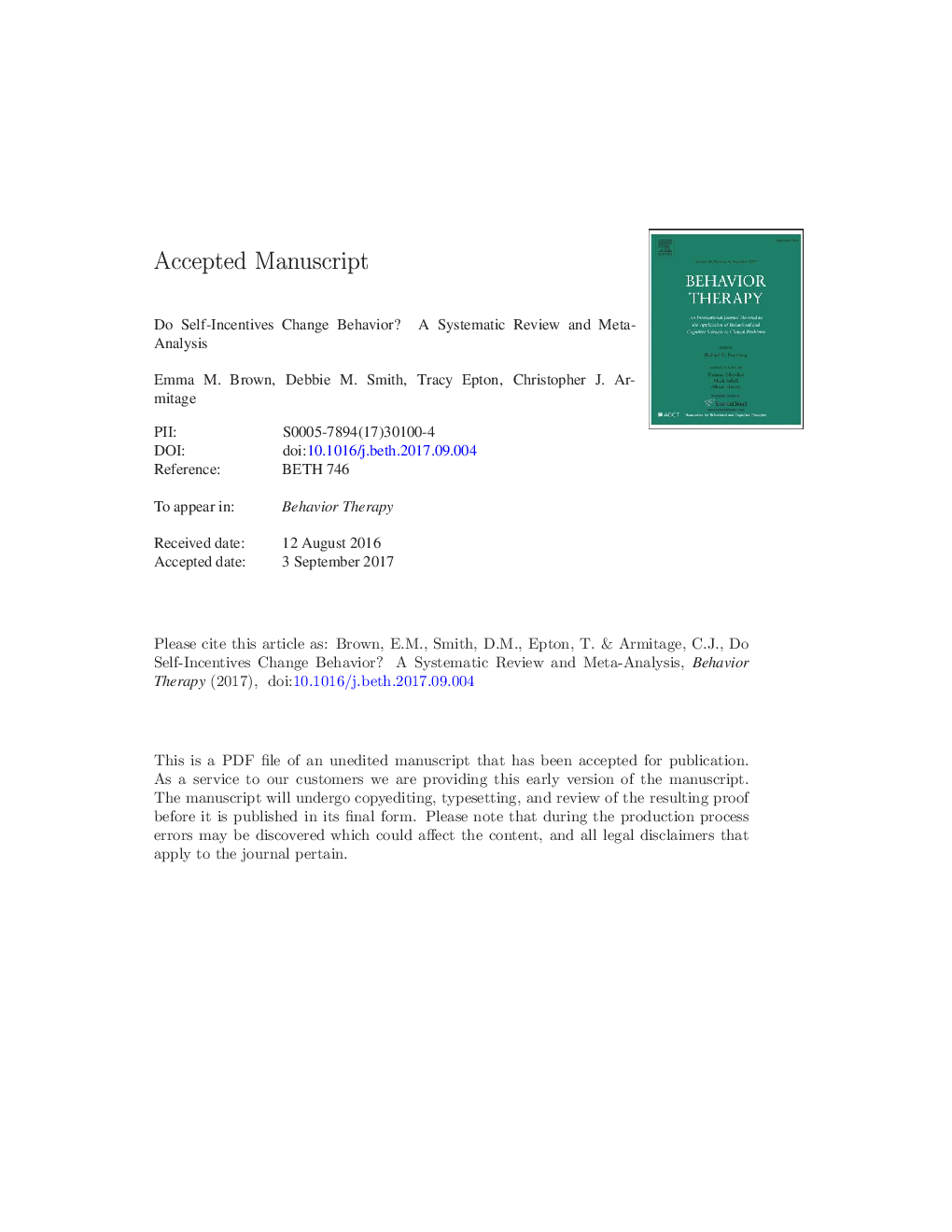| Article ID | Journal | Published Year | Pages | File Type |
|---|---|---|---|---|
| 7261696 | Behavior Therapy | 2018 | 30 Pages |
Abstract
Encouraging people to self-incentivize (i.e., to reward themselves in the future if they are successful in changing their behavior) or self-reward (i.e., prompt people to reward themselves once they have successfully changed their behavior) are techniques that are frequently embedded within complex behavior change interventions. However, it is not clear whether self-incentives or self-rewards per se are effective at bringing about behavior change. Nine databases were searched alongside manual searching of systematic reviews and online research registers. One thousand four hundred papers were retrieved, spanning a range of behaviors, though the majority of included papers were in the domain of “health psychology”. Ten studies matched the inclusion criteria for self-incentive but no studies were retrieved for self-reward. The present systematic review and meta-analysis is therefore the first to evaluate the unique effect of self-incentives on behavior change. Effect sizes were retrieved from 7 of the 10 studies. Analysis of the 7 studies produced a very small pooled effect size for self-incentives (k = 7, N = 1,161), which was statistically significant, d+ = 0.17, CI [0.06, 0.29]. The weak effect size and dearth of studies raises the question of why self-incentivizing is such a widely employed component of behavior change interventions. The present research opens up a new field of inquiry to establish: (a) whether or not self-incentivizing and self-rewarding are effective behavior change techniques, (b) whether self-incentives and self-rewards need to be deployed alongside other behavior change techniques, and, (c) when and for whom self-incentives and self-rewards could support effective behavior change.
Keywords
Related Topics
Health Sciences
Medicine and Dentistry
Psychiatry and Mental Health
Authors
Emma M. Brown, Debbie M. Smith, Tracy Epton, Christopher J. Armitage,
